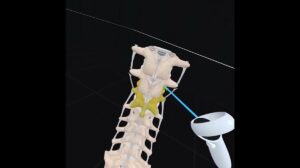NEW YORK (Reuters Health) – New research does not support the routine use of hematopoietic stem cell transplantation (HSCT) in infants with acute lymphoblastic leukemia (ALL) with mixed lineage leukemia (MLL) gene rearrangements in first complete remission.
But the study was a small one, and so it “should not be considered the definitive answer to this question,” the investigators caution.
Although most children with ALL are cured with currently available therapies, the event-free survival of infants with ALL, particularly those with MLL-rearranged ALL, is poor. Relapse is their major source of treatment failure.
The children in the current trial were drawn from two previous studies: Children’s Cancer Group (CCG) 1953 and Pediatric Oncology Group (POG) 9407. Both studies tested the theory that intensifying chemotherapy (i.e., calculating dose by body-surface area rather than body weight) would improve the outcome of infants with ALL.
Dose intensification was followed by HSCT for infants with MLL-positive ALL early in first complete remission.
In the December 6 online issue of the Journal of Clinical Oncology, Dr. ZoAnn E. Dreyer of Texas Children’s Hospital in Houston and a multicenter team report on 53 MLL positive infants who underwent HSCT and 47 MLL-positive infants who received only intensified chemotherapy (control arm).
The 5-year event-free survival rate was virtually identical in the HSCT group and the chemotherapy-only group (48.8% and 48.7%, respectively). Overall survival at 5 years was 53% in the HSCT group and 59% in the chemotherapy only group, according to the report.
Significant differences in event-free survival or overall survival for infants treated with or without HSCT did not emerge in any of the various subgroup analyses.
In this study, HSCT “offered no advantage” compared with intensive chemotherapy regardless of the choice of preparatory regimen used, Dr. Dreyer and colleagues say.
Potential reasons for the lack of a difference in outcome between patients who did and did not receive HSCT include improved outcomes in the chemotherapy only arm and a suboptimal transplantation regimen, they note.
There were more events in the first six months in the HSCT group compared with the chemotherapy group (20 vs 9). In the HSCT group, there were 11 transplantation-related deaths and 9 relapses and in the chemotherapy group there were 2 toxic events and 7 relapses.
The authors say additional studies might help identify subgroups of infants most likely to benefit from HSCT (or, conversely, who would have a high cure rate with chemotherapy alone).
“As chemotherapy and transplantation regimens change, the comparison of HSCT and chemotherapy in infants with MLL-rearranged ALL will require re-evaluation,” they add.
J Clin Oncol 2010.




